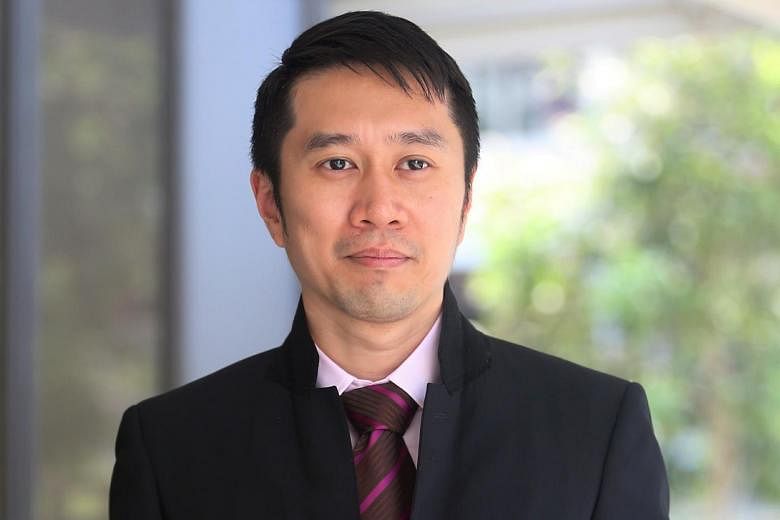SINGAPORE - Civil rights activist Jolovan Wham was clearly advocating the use of civil disobedience to bring about social change when he organised an event in 2016 that featured Hong Kong activist Joshua Wong, said a High Court Judge.
In a written judgment on Friday (Oct 25), Justice Chua Lee Ming dismissed Wham's appeal against conviction and sentence for organising a public assembly without a permit.
Wham, 39, had invited his 7,600 followers on Facebook to attend the public event, called "Civil Disobedience and Social Movements", held at an indoor venue on Nov 26, 2016.
Days before the event, on Nov 23, Wham was advised by the police to apply for a permit but he did not do so.
After the event, he was charged with organising a public assembly without a permit and with refusing to sign a police statement. He was found guilty of both charges and sentenced to a $3,200 fine by a district court earlier this year.
At his appeal earlier this month, Wham's lawyer, Mr Eugene Thuraisingam, argued that the event was merely a "discussion" and did not fall within the legal definition of an "assembly" as it was not carried out to publicise a cause.
But Justice Chua concluded that the prosecution has proven that Wham had intended the event to publicise a cause, specifically to advocate the use of civil disobedience to bring about social change.
The judge rejected the contention that the event was just a neutral academic discussion.
It was clear from the description on Facebook that the talks by Mr Wong and two others were about the role that civil disobedience had to play in bringing about change, he said.
The judge added that he had no doubt that in inviting Mr Wong, who spoke via a video call, Wham had intended or expected that the Hong Kong activist would advocate the use of civil disobedience.
"Telling the audience how civil disobedience had been used in Hong Kong and asking the audience to think about using civil disobedience in Singapore, was tantamount to advocating the use of civil disobedience," he said.
Justice Chua added that statements made by Wham also showed that he was advocating the use of civil disobedience.
Wham had told participants that the Singapore approach to activism was to "have a picnic" like the Pink Dot movement. Wham then said: "We don't seem to like this very confrontational civil disobedience types of actions. So how do we get there? I think this is the billion-dollar question."
The judge questioned why Wham would pose the "billion-dollar question" if he was not advocating that Singapore citizens should move from picnic-type activism to confrontational actions.
Justice Chua also rejected arguments that the requirement of a permit contravened the constitutional right of Singapore citizens to assemble.
As for the second charge, the judge rejected Wham's argument that he did not have a legal obligation to sign his police statement.
The requirement for an individual to sign on his statement is to ensure that it was accurate and reliable, he said. The judge added that if a person disagrees with the contents of his statement, he can always make amendments before signing it.
Wham, who is currently on bail, intends to bring the case further to the Court of Appeal to determine questions of law of public interest, said his lawyer.


